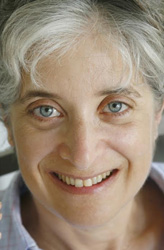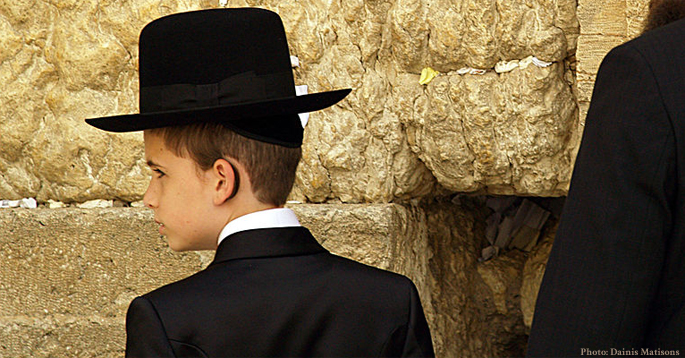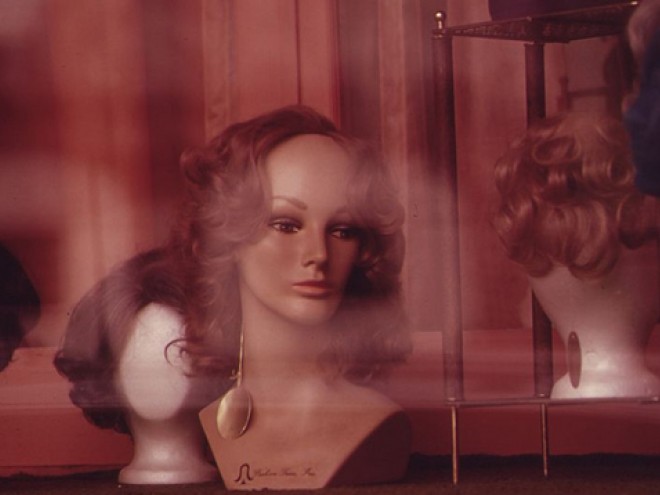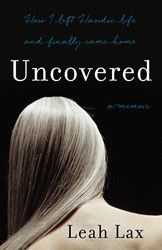Earlier this week, Leah Lax wrote about Gloria Steinem named her book. The author of Uncovered: How I Left Hasidic Life and Finally Came Home, she has been blogging here all week as a Visiting Scribe on The ProsenPeople.
I used to teach young children in a Hasidic school. I wasn’t trained for it — I was recruited, but it was one of the only professional avenues open to me. I was a Hasidic woman back then, married, with a wig on my head, and children of my own. I learned to teach on the job, and poured every ounce of perception, creativity, planning, structure, and love that I could into my students.
I found the teaching process wondrous. My classroom was a magical place that kept the chaotic world away from my charges, a reliable, stimulating, safe place where confusion or doubt never entered, where God was always a source of clarity. In my classroom, it was perfectly conceivable that a snake could stand on hind legs and mislead Eve, that Moses could lift his rod to split a sea and birth our nation, that God’s voice could thunder from a mountaintop and form a people so awed they remained forever loyal. We translated Genesis together from the Hebrew, letter by letter, word by word, using songs and illustrations and patient teasing apart of the logic of that ancient language until I saw the light go on in a child’s eyes. “Think!” I would say. “Think!”
Then I handed out prizes for correct answers. Not once during those years did I imagine there might be more than one correct response. Never did I think to reward the creative thinking and intellectual independence that might have led to a “wrong” answer. Not once did I ever tell my students, “Ask!” or “Question!” or “Wonder!”
It’s not that I didn’t understand the difference between education and indoctrination. I did. But I was proud of my role as indoctrinator, molding minds in just the right way, forming a new generation of staunch little Hasidim, soldiers in the Rebbe’s Army of God.
We sang a lot. Song was a perfect mnemonic for the great deal of memorization I expected of them. I put prayers, vocabulary, rules, and Hebrew lists — such as Hebrew names of days, and months, the parshiot (weekly portions) in each book of the Torah, the steps in the Passover seder — to song. I knew that when the kids went home, they would sing these songs to themselves as they played, and I wanted the parents to hear and feel proud of how their children were being filled with the knowledge and structure of our complicated, prescribed lives.
There are sins, the Talmud tells us, for which one cannot atone, for example, leading others to sin. I have trained hundreds to squelch their budding questions, to believe that education is indoctrination, to suspend disbelief and devote themselves to rote. I have taught that getting an education means learning to obey and think the right thoughts. I never once asked my students to consider studying anything that expressed dissent or a worldview other than our own.
 I thought a lot about those long ago teaching years while reading fellow JBC author Linda K. Wertheimer’s Faith Ed. I thought about them even more when Linda recently sent me an article from Duke University’s Chronicle quoting several incoming students who had refused to read Alison Bechdel’s Fun Home, the assigned summer reading for Duke’s incoming class, saying that engaging with a lesbian memoir so would compromise their religious beliefs. I hear these students’ high-minded sentiments as a little forced, like they’re trying to be good. After all, they’re young, not even freshmen yet, haven’t yet gotten away from their parents or even begun to immerse themselves in university studies. They are full of their families’ religious teachings. But, lucky them, unlike my little Hasidic charges, their parents sent them away from home to a secular university.
I thought a lot about those long ago teaching years while reading fellow JBC author Linda K. Wertheimer’s Faith Ed. I thought about them even more when Linda recently sent me an article from Duke University’s Chronicle quoting several incoming students who had refused to read Alison Bechdel’s Fun Home, the assigned summer reading for Duke’s incoming class, saying that engaging with a lesbian memoir so would compromise their religious beliefs. I hear these students’ high-minded sentiments as a little forced, like they’re trying to be good. After all, they’re young, not even freshmen yet, haven’t yet gotten away from their parents or even begun to immerse themselves in university studies. They are full of their families’ religious teachings. But, lucky them, unlike my little Hasidic charges, their parents sent them away from home to a secular university.
In Amber Humphrey’s response to the Fun Home phenomenon, she seemed to be talking directly to those students: “Learning means we attempt to understand — it doesn’t mean we have to like everything we’re exposed to.” She goes on to sketch out her ideal liberal arts education, one that imparts through study the vicarious experience of a broad range of philosophies, societies, and individual stories in order to understand and come to respect all of humanity, stretching minds in the process. But her article was entitled, College Students Refusing to Read a Lesbian Memoir Don’t Deserve College. Wait a minute, I thought. Those are the very students that need college.
I imagined getting to assemble my students of long ago and talk to them as she seemed to be doing, and re-set the course of their studies, a glorious second chance. I would caution them to be wary of anything called “education” that attempts to close their minds. Given how I once caught their hearts with songs, I would tell them to listen to all kinds of music, especially music without words. I would say, “Ask!” and “Question!” and “Wonder!”
So here’s the question that I want to put out on this Jewish forum: in our day schools and religious schools where there is not even a vestige of separation of Church and State, how can we convey beliefs, ritual, communal standards, yet educate and not indoctrinate? How do you balance the dictates of religion with the educator’s job of opening minds — especially in the guise of religion, the kindest of people can teeter toward dictatorship?
These days, I wake every morning amazed to find myself with a great home, a funny dog, and a loving wife, ever grateful for second chances. Like my old classroom, our home together is also a magical place that nurtures our beliefs, also a hedge against a chaotic world. But this is true in spite of our porous walls that admit world events and all kinds of people and beliefs, and in spite of the acknowledgement within those walls that we live unanswerable questions, and then we die. I believe the best-lived lives belong to people who learned to embrace those questions early on.
Leah Lax is the author of Uncovered: How I Left Hasidic Life and Finally Came Home, now available for purchase.
Related Content:
- Essays on Political Leanings and Current Events
- Joshua Braff: Love at Hillel Academy
- Interview with Eve Harris, author of The Marrying of Chani Kaufman
Leah Lax (MFA Creative Writing) is an author and librettist. Her first book was the award-winning Uncovered. Not From Here follows her journey back into society through listening to new immigrants tell their stories. In the process, she also uncovers the stories of her Jewish grandparents, and begins to understand who she is now as a Jew and an American.



